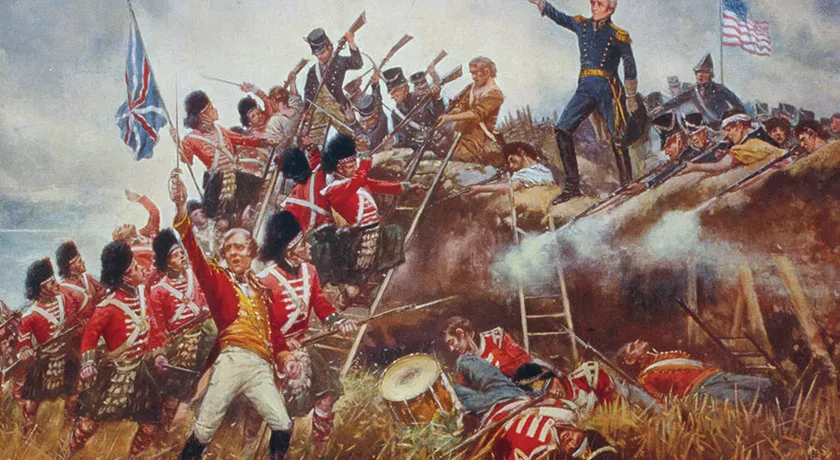Many of the most successful people in history learnt by reading about those who came before them and drew lessons from those. Patterns repeat, or rhyme.
Napoleon used to learn by reading those great generals before him and battles. Elon Musk learnt by reading widely. Most great people learnt from history.
There is a lot of history, while absorbing lots of history can be useful, it might be more time efficient to explore history and learn more actively. By asking questions and digging deeper. To share and teach others those lessons. Also to have debates with others about these topics so you can test your assumptions.
Here are some example questions:
- What are the underlying patterns and principles of history?
- What are the turning points of history?
- How are these patterns and principles likely to impact the future?
- What is the role that geography played in history?
- How has geography changed now compared to the past?
- What is the same, and what is different?
- What made Napoleon so successful? Why was he different to others?
- What are the most pivotal points of history that we should study?
Here are some of my thesis about history that I want to explore and test and refine:
- Trends & Pivotal Moments: There are two core forces in history: trends, and pivotal moments. Trends are the underlying trends that affect overall society, such as from hunter gatherers to farming. Pivotal moments might exist on a battlefield or in a conversation between two people where the future of history can go either way. Concentrated force at pivotal moments can change the force of history. Identifying these trends and pivotal moments is therefore extremely important.
- History is the Biography Great Men. What makes great men? How to identify, train, nurture and put them in pivotal moments.
- Empires – exist because of some technological or organisational advantage over others. Over time others learn these advantages and the empire loses it’s advantage.
- Technological and economic advantages – generally underrated in modern opinion. Economies win wars.
- Materials are generally an underrated part of technology.
- Populations Demographics are Underrated
- Our understanding of the economy distorts it. GDP distorts economics. High Birth Rates is just as much as a sign of a successful economy as high GDP growth. Birth rates grow in nature when there is abundance and falls when there is scarcity. This quote from Will Durant: “If the human brood is too numerous for the food supply, Nature has three agents for restoring the balance: famine, pestilence, and war.”
- Our understanding of morality is based on what we perceive as self interest. Just as people thought that slavery was acceptable, now we think that eating meat and employees are acceptable. Ultimately, what we think of as good and bad doesn’t matter. It’s what is the most successful that wins.
- Religion is important. “Usually in history the moral life of a people deteriorates along with the weakening of its religious belief.” “There is no significant example in history, before our time, of a society successfully maintaining moral life without the aid of religion.”
- Mediocrity Vs Excellence – there is a trend towards mediocrity and very few people are excellent. The majority are mediocre which is more comfortable. Excellent people are driven by something unordinary.
- Male-female Romantic/Familial Relationships is often an important part of what drives people to be excellent.
- It’s Easier to do Hard Things – It’s easier to do extremely hard or difficult things than things everyone is aiming for.
- Drawing Lessons – Lessons from other unrelated disciplines and subjects can be applied to others.
- War is Inevitable. War is one of the constants of history. Peace is an unstable equilibrium. The causes of war are the same as the causes of competition among individuals.
- History is the story of concentration of wealth and then redistribution of it. Concentration of wealth is natural and inevitable (leading to redistribution or revolution). The struggle of socialism against capitalism is part of the historic rhythm in the concentration and dispersion of wealth.
- Freedom and equality are enemies. When one prevails the other dies. “Even when repressed, inequality grows; only the man who is below the average in economic ability desires equality; those who are conscious of superior ability desire freedom; and in the end superior ability has its way. “Utopias of equality are biologically doomed, and the best that the amiable philosopher can hope for is an approximate equality of legal justice and educational opportunity. A society in which all potential abilities are allowed to develop and function will have a survival advantage in the competition of groups.“
- There is a delicate balance between freedom and order. “The age of criticism is an age of freedom. The age of order is an age of stability.”
- “Democracy is the most difficult of all forms of government, since it requires the widest spread of intelligence, and we forgot to make ourselves intelligent when we made ourselves sovereign. Education has spread, but intelligence is perpetually retarded by the fertility of the simple.“
- “If we were to judge forms of government from their prevalence and duration in history we should have to give the palm to monarchy; democracies, by contrast, have been hectic interludes.”
- Democracy has done less harm, and more good, than any other form of government.
Here are some more lessons of history.
35 Life-Changing Learnings from “The Lessons of History” by Will & Ariel Durant (Book Summary)
